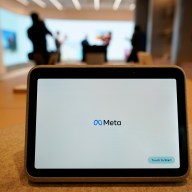Asking a political scientist to write about an election campaign before the results come in is like asking the theater critic to file a review of a play at intermission. But’s it’s also a good to sit down and ponder – independent of the final voting results — what this campaign has meant and how it has gone.
First, isn’t everyone glad it is over? We’ve been told that the results depend on “a handful of undecided.” I’ll bet there are many more undecided than people who are still enjoying this campaign. The question is, what are the costs and benefits of having a campaign that has been going on full speed since January and, in practice, before that? Remember, Mitt Romney started to run against Barak Obama almost three years ago.
Some would say that long campaigns are useful because during them we learn so much more about the candidates and their positions. It’s hard to make that case this time. I don’t think even Mitt’s most ardent supporter is any clearer on his positions on topics such as the environment, tax allowances, or abortion than when he started out.
We’ll come back to the financial costs of the campaign, but for now let’s just think about how the length of the campaign has imposed costs in terms of governing – hard choices deferred, compromise subordinated to getting a good sound bite to use in commercials. This applies to decisions about the government’s budget and the economy, of course, but it also affects decision making on foreign policy. Other democracies get by with much shorter campaigns. It really isn’t fundamental to democracy that the system works this way.
Second, it sure was expensive. The price tag of $6 to $7 billion is huge. I know it can be argued that we spend as much advertising automobiles or laundry detergent, but there’s no way round the fact that this is a staggering amount of money. Raising that money takes a lot of time and requires paying a lot of attention to donors that could have been spent on voters.
In our politics, as in many other aspects of our society, the super rich have gained in importance and leverage. But there’s plenty of blame to go around here.
President Obama destroyed the practice of presidential candidates relying on public funding in 2008 when he realized he could raise much more money than public funding would provide. The Supreme Court’s infamous Citizens United decision in the name of free speech deliberately opened the floodgates to more spending by people or groups laughably said to be independent of the candidates. People such as Sheldon Adelson have bought themselves plenty of free speech this time around, much of it spent on negative attack ads. By the end of October, Adelson has spent over $54 million going after Obama and promoting Romney. That’s a lot more “free speech” than most citizens can afford.
Third, the candidates, the parties, and the independent groups certainly continued to believe the experts’ advice that negative advertising works. Yes, we all say we hate negative advertising, but research shows people remember it. It’s not surprising therefore that we get so much of it. Here in Massachusetts we had the odd spectacle of GOP Sen. Scott Brown, even while describing himself as a fence-building moderate, running constant personal attacks on his opponent, Democrat Elizabeth Warren. A Brown victory would score another one for the argument that going negative and personalistic works.
Fourth, doesn’t this campaign show yet again how pernicious the Electoral College is? We don’t know yet if the undemocratic difference will re-emerge this year between the popular vote and the Electoral College vote, as we saw in 2000. We do know that all the attention of the presidential campaigns in the last few weeks has been concentrated on a handful of states.
Abolishing the Electoral College would force candidates to behave very differently. We’d have seen Romney campaigning in California and New York because there are a lot of potential Republican voters there. We’d have seen Obama campaigning in Texas because, although they’re a minority in the state, there are plenty of potential Democratic voters there. In a USA worried about polarization, wouldn’t this have been good for the country?
So was there anything positive to be learned or said about this campaign?
First, as with military campaigns, the commanders in the next will admire its tactical successes. Romney’s success in moving to the right to win the Republican nomination in the winter and then back towards the center in the fall will be studied as textbook strategy for presidential candidates in the future. Democratic hopefuls will wonder if they can be as successful in tacking left and then back to the center in their party. Every presidential challenger will study and try to emulate Romney’s triumph over Obama in the first debate. Social scientists may be skeptical that the first debate changed many votes, but it certainly changed the dynamics of the campaign. We’ll have to see the results before we know if the president’s emphasis on the identify-and-get-out-the-vote ground game paid off.
Second, perhaps more importantly for the country, all the flip-flopping and clever ads could not obscure the fact that underlying this election has been a serious issue. No, it’s not just the economy. Yes, the economy matters enormously to people but it’s is not clear that there are real as opposed to rhetorical differences between the two candidates on macroeconomic policy. The real underlying choice has been about the role of government in our society.
Is government an important tool for stabilizing the economy, advancing social justice, and protecting things that affect us all such as the environment? Or is government an impediment to growth and prosperity through excessive taxation and regulation? While Romney in the fall campaign backed away from the extremism of the Tea Party wing of the Republican Party, there’s little doubt that a Romney administration would have different priorities in this regard than President Obama’s.
Asked if they want lower taxes or government services, Americans in recent decades have refused to choose and demanded both. The difference has been met by borrowing, often from overseas. Many Americans finally sense that this cannot go on forever and the moment of choice is nearing. That’s what makes this campaign so significant and so hard fought.
And finally, let’s take a moment to think positive thoughts about the candidates and their supporters. At the presidential level, the candidates and their families have been put through a level of scrutiny that simply doesn’t exist in the private sector. But I’m not just referring primarily of the presidential candidates here.
I’m thinking of people like my friend, Deb, running for State Assembly in New Hampshire standing in the cold and rain at the town dump every Saturday and Sunday instead of curling up on the sofa watching the Patriots. I’m thinking of the young volunteers on both sides who sleep on floors or airbeds while working away from home to help their candidates in crucial swing states. These are the people we should thank for making our democracy work — not the billionaires dropping millions on negative ads.
-Wilson is chairman of Department of Political Science at Boston University.
















